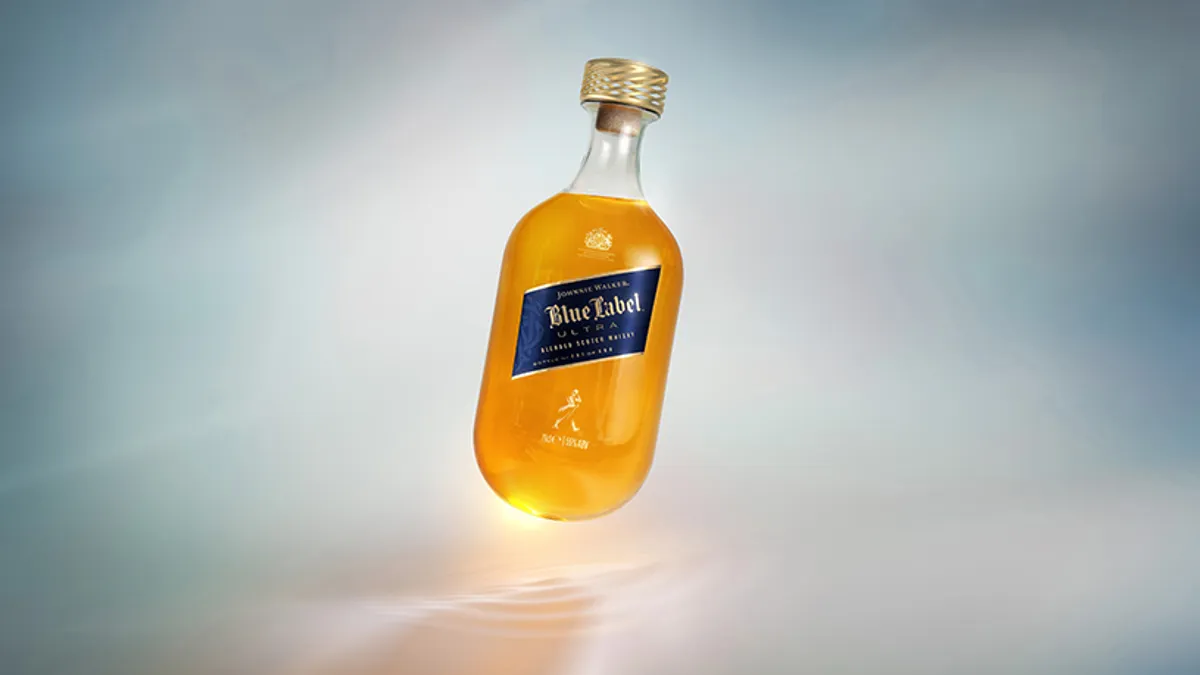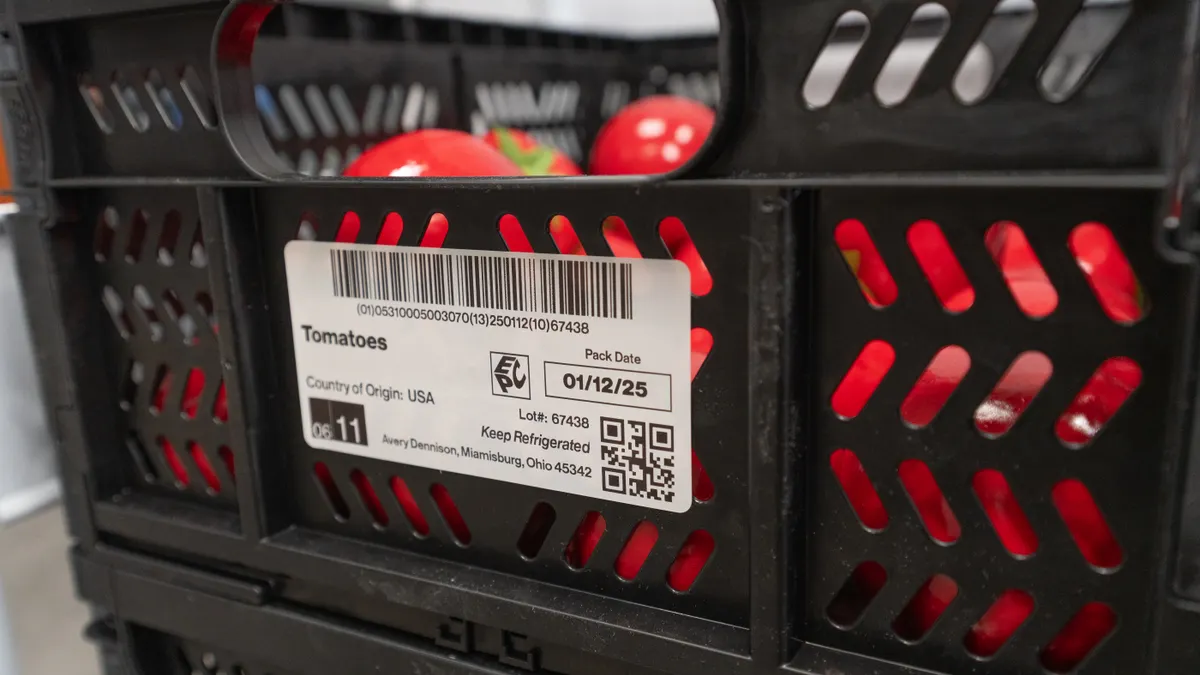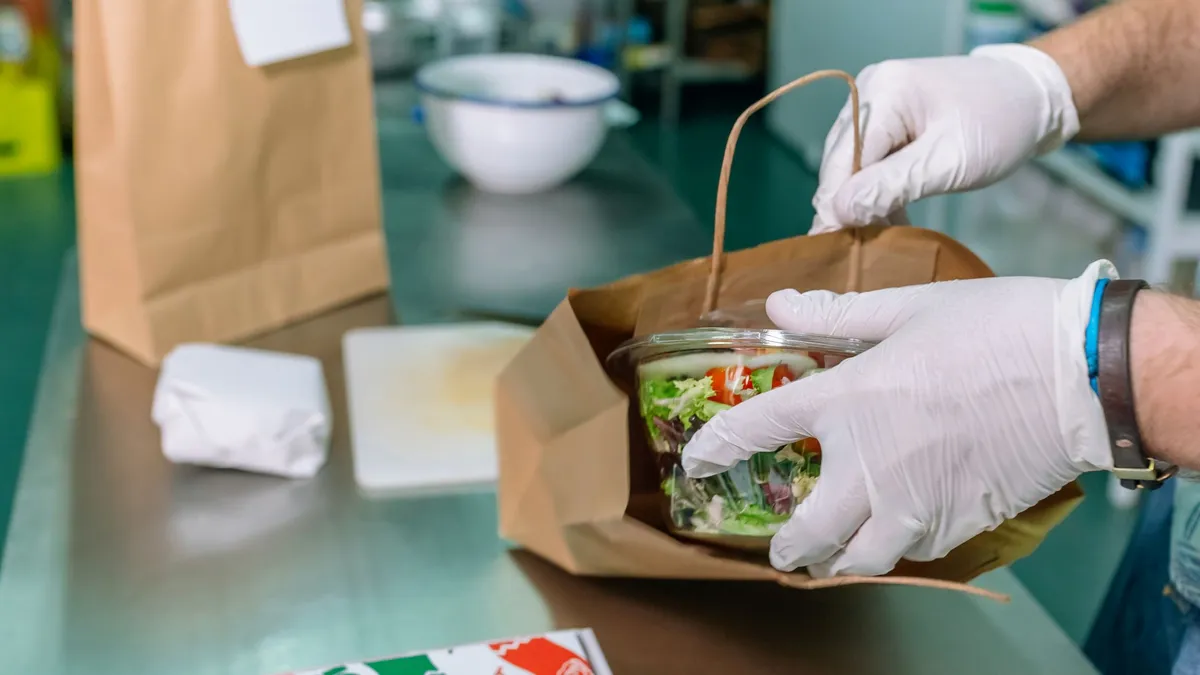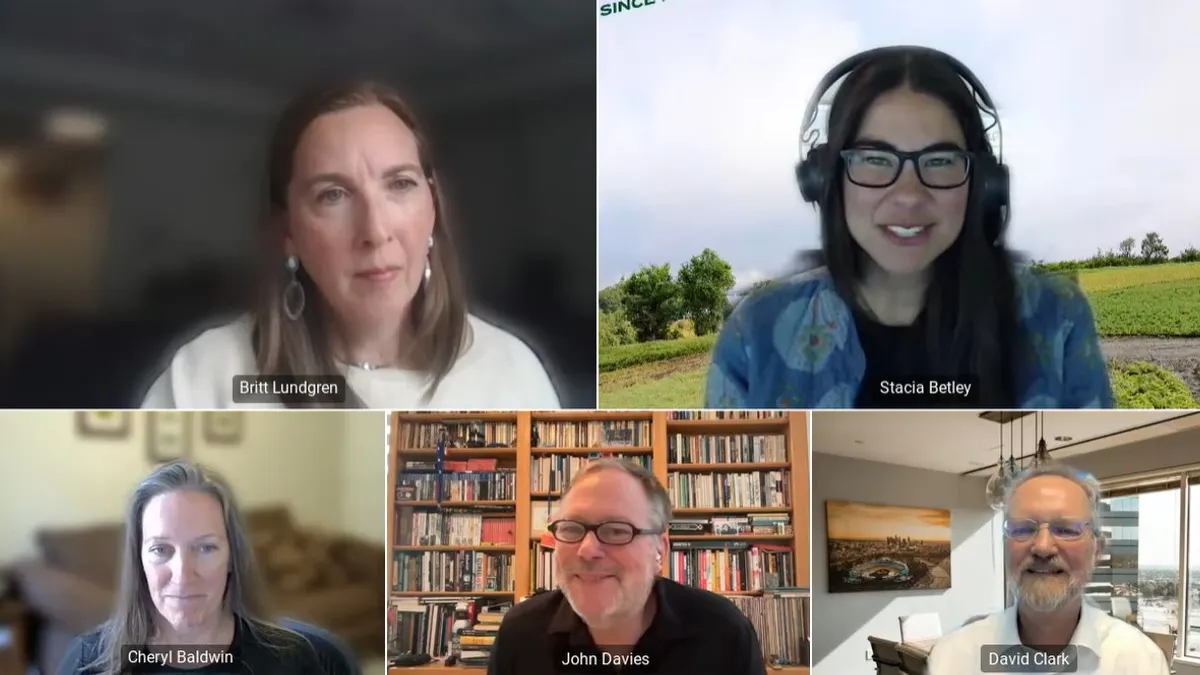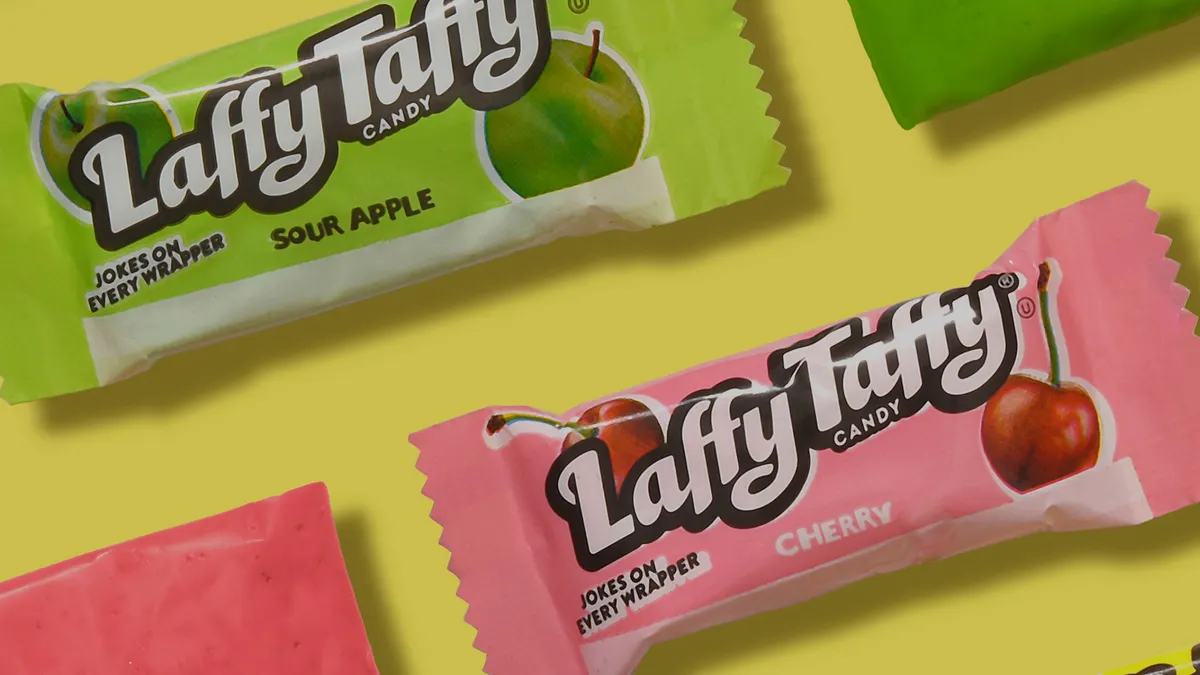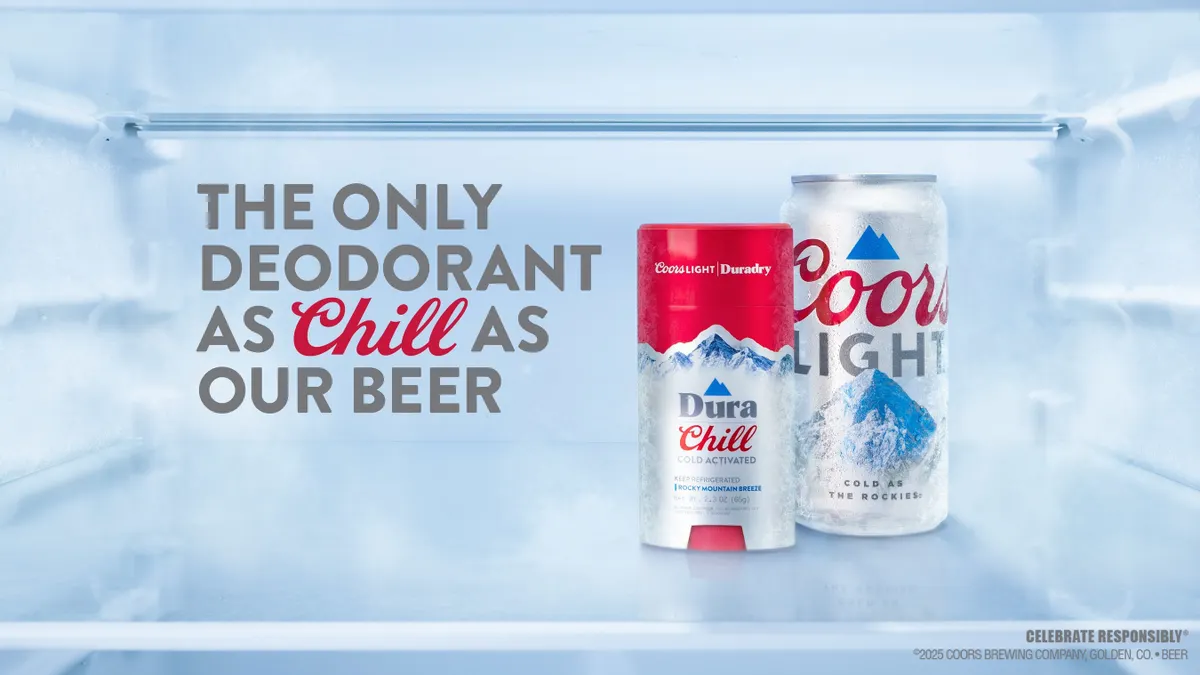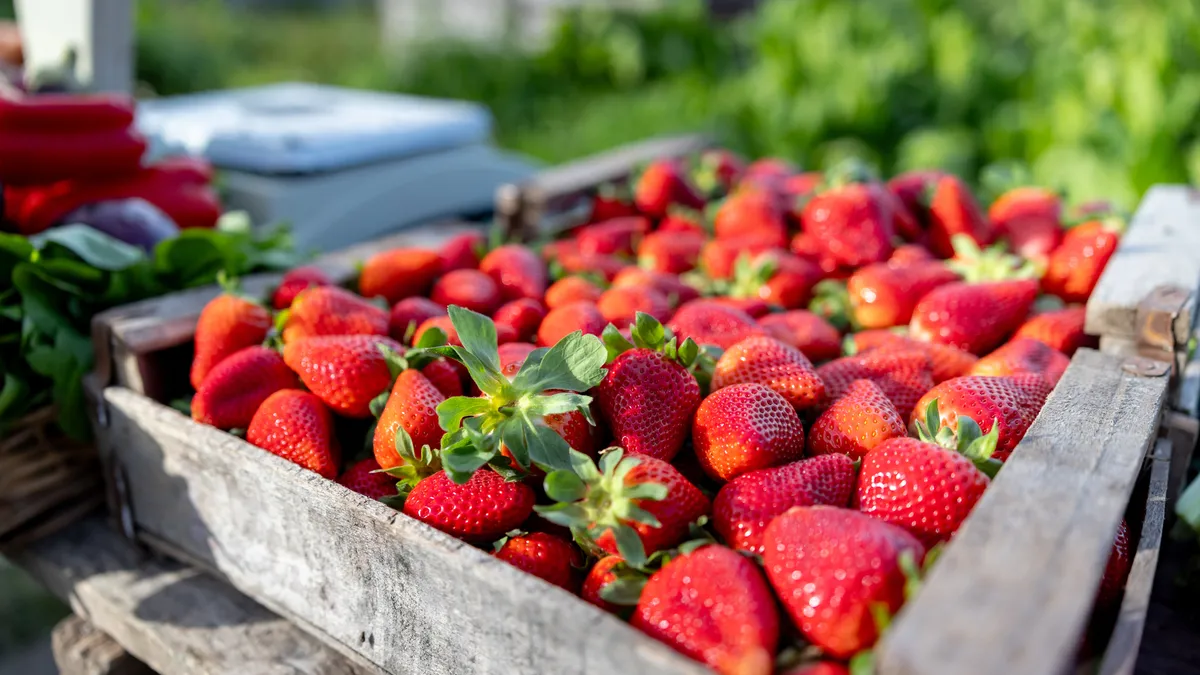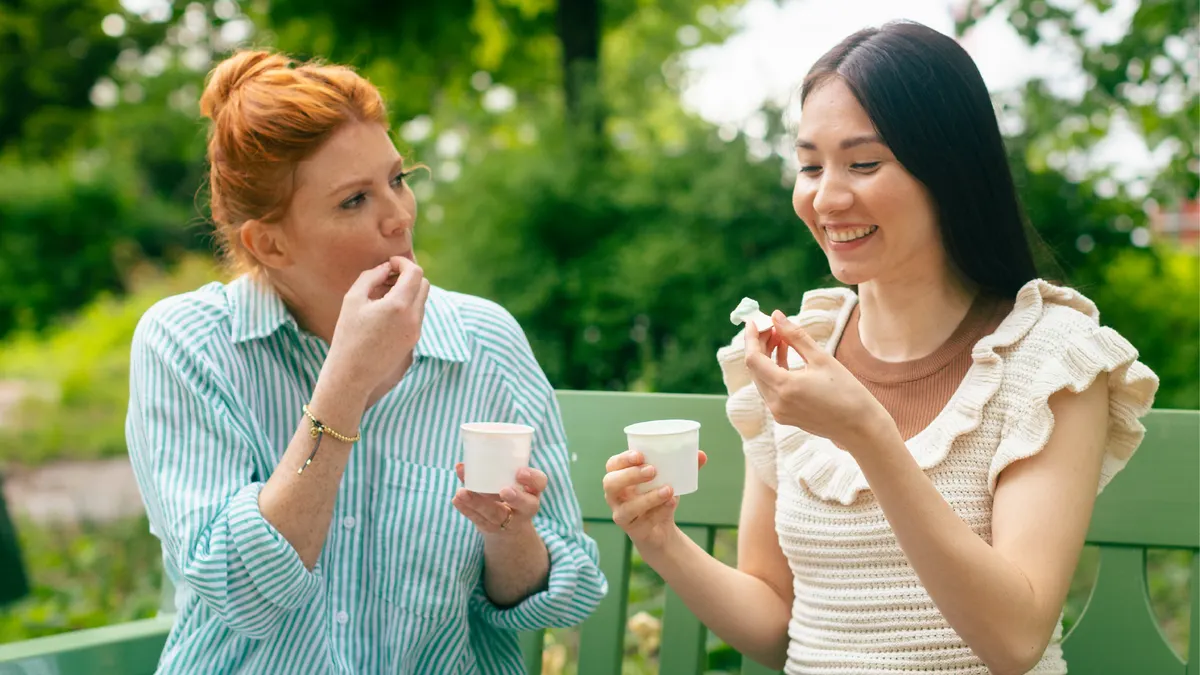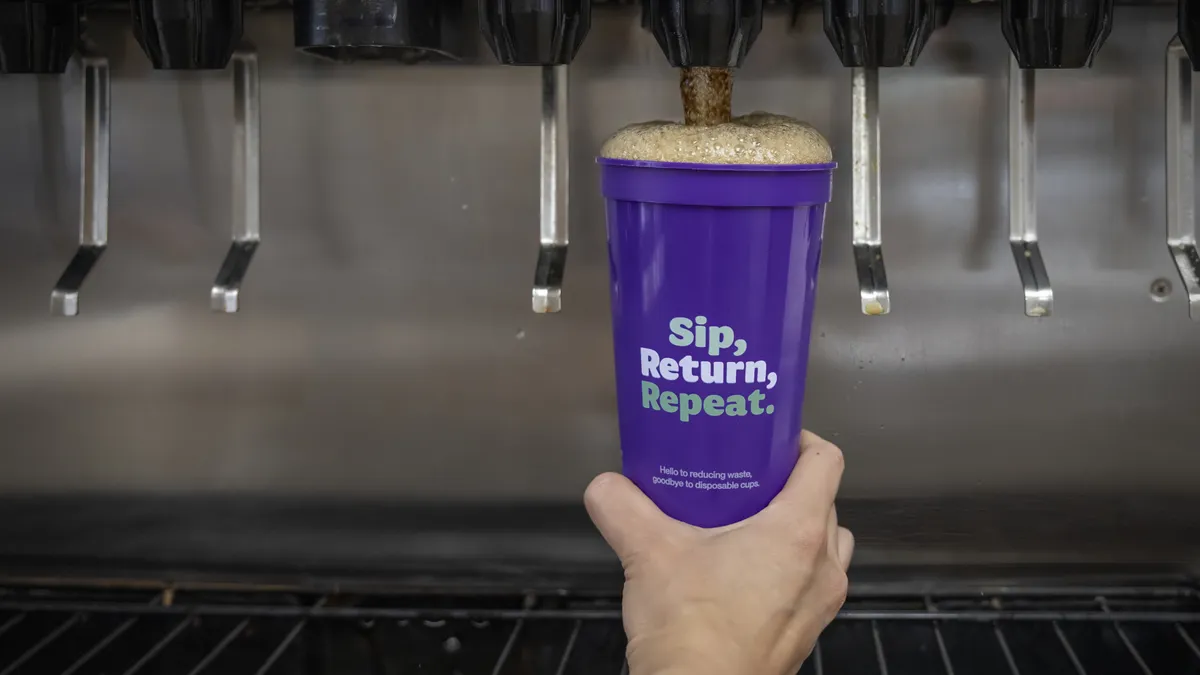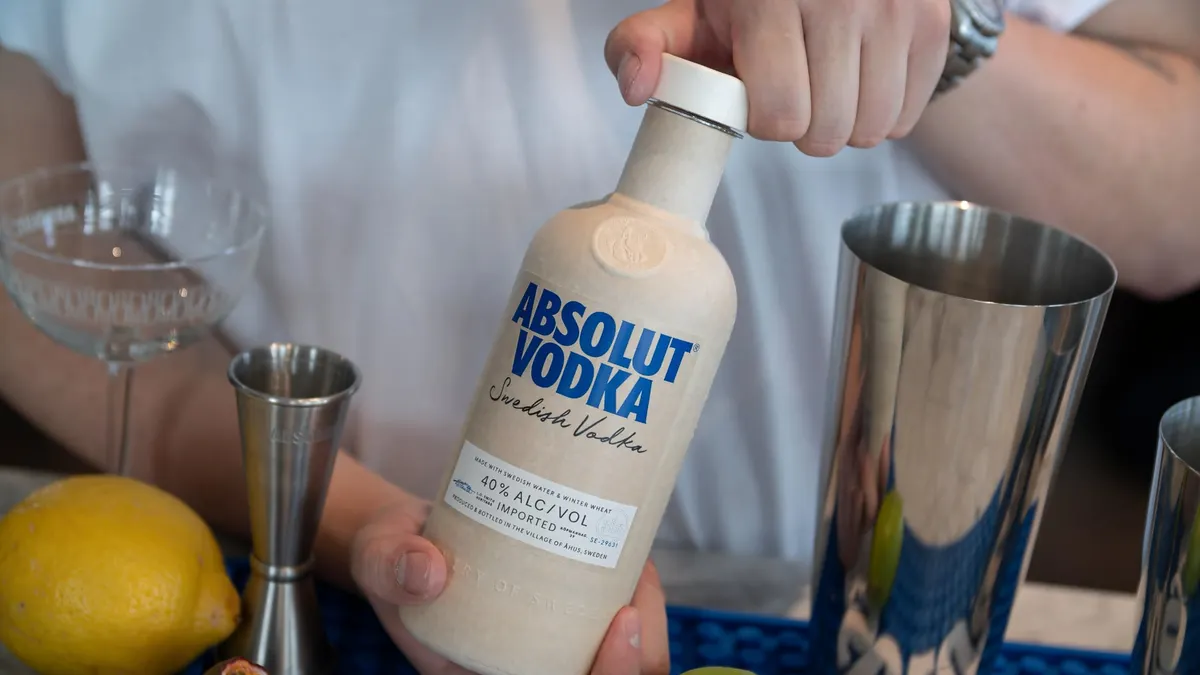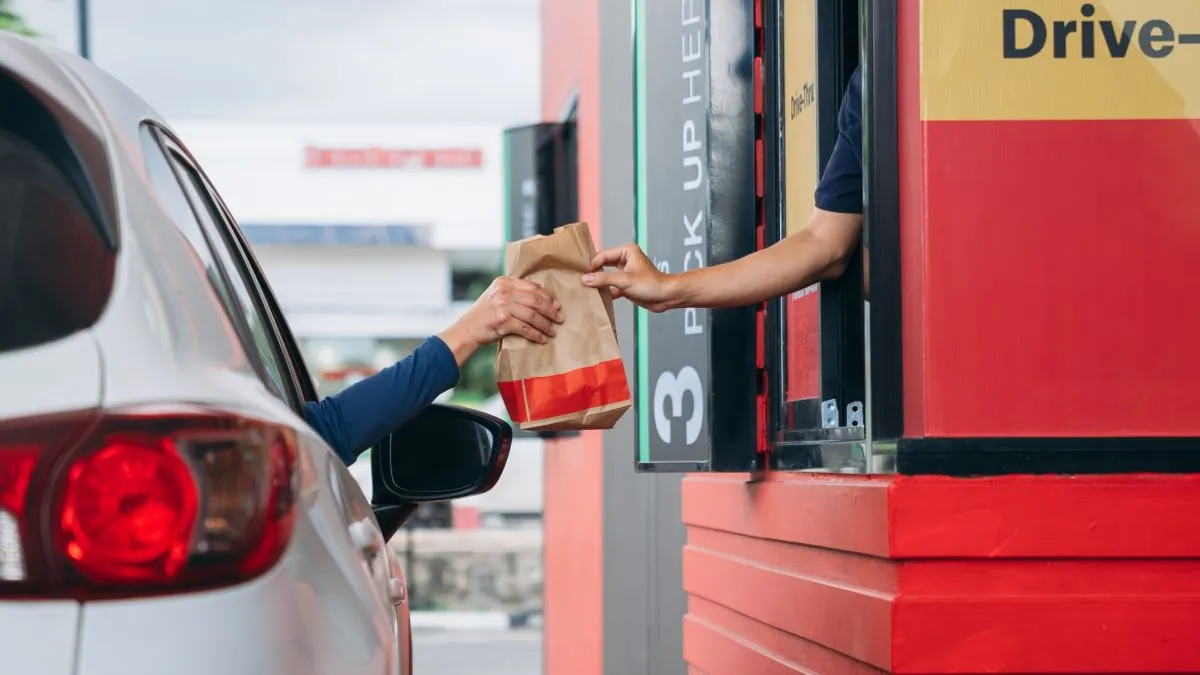Companies constantly innovate with technology and redesign their packaging to get better performance, improve marketability and enhance sustainability. Here’s a look at five new or redesigned packaging solutions on Packaging Dive’s radar.
Lightweighted liquor
Scotch whiskey brand Johnnie Walker introduced what it said is its lightest-ever glass bottle, weighing in at 180g without the closure. The limited-edition run of 888 of the 70 centiliter Johnnie Walker Blue Label Ultra bottles will be available in 2025. Alcoholic beverage giant Diageo, the company behind the brand, said this design “showcases what luxury, lighter-weight, lower-carbon bottles of the future could look like.”
“Along with external glass makers, the brand rethought all aspects of how the bottle is designed, made and transported: from hand-blowing the glass, to using a teardrop shape which, for the first time ever, meant reforming the iconic Johnnie Walker square bottle,” according to a Diageo press release.
The goal with lightweighting is to lower the carbon emissions associated with packaging, as Diageo works to have net zero carbon emissions across its direct operations by 2030 and across its entire value chain by 2050.
Diageo said that it can’t yet permanently scale these lightweighted bottles due to technology limitations, but it’s applying lessons from five years of development across its portfolio, which includes some 200 brands including Guinness, Baileys, Smirnoff and Casamigos.
Jeremy Lindley, Diageo’s global design director, said the decision to pursue this development process was in part inspired by lightweighting trends for products in other industries.
“The technical challenges that lightweighting presents led us to incorporate various design and production specifications that we could not have envisaged at the start of our journey; from the requirement of a tear drop shape which we have moulded to still mimic the iconic square form of Johnnie Walker bottles, to the addition of a protective cage to allow for a round base, and the hand-making and filling of each individual bottle to avoid damages in production,” Lindley explained.
Diageo said it’s secured a patent in the U.K. and intends to license it royalty-free to other companies in the industry.
Insulation that’s compostable
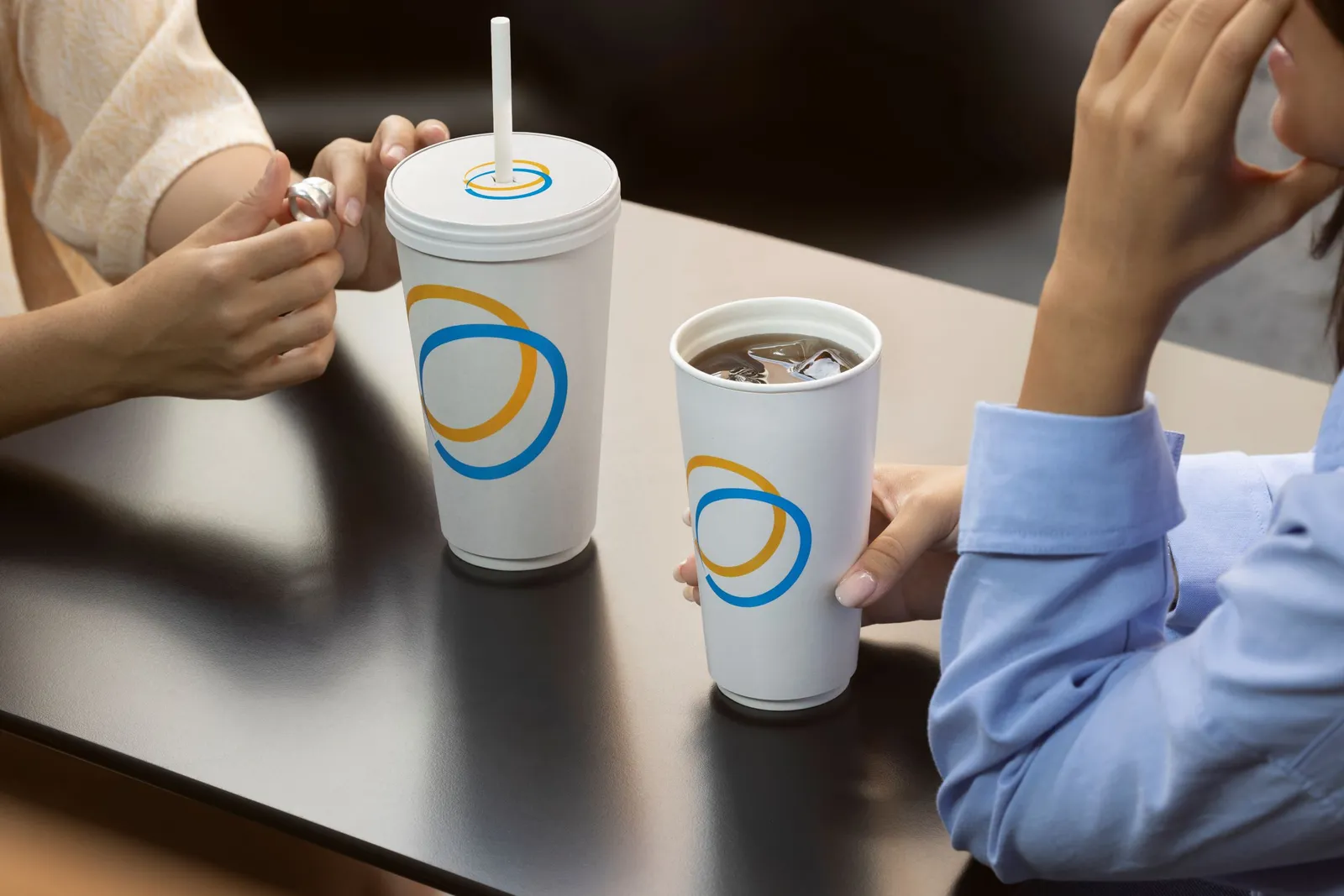
Food service packaging specialist Seda is launching compostable double-walled cold cups in North America.
The cups are made from BPI-certified materials. The double-walled design is meant to reduce condensation to avoid weakening the cup and detracting from consumers’ tactile experience. The company is launching its paper EcoFit lids, also made from compostable paperboard, to pair with the cups. The development process took about two years, according to a company spokesperson.
Seda North America is part of Seda International Packaging Group, which is based in Italy. It has marketed double-walled hot cups since the 2010s as an alternative to insulated foam cups.
Seda recently worked with Starbucks on compostable cold cups, made from double-walled paperboard with a bioplastic liner.
Paper push for plant-based
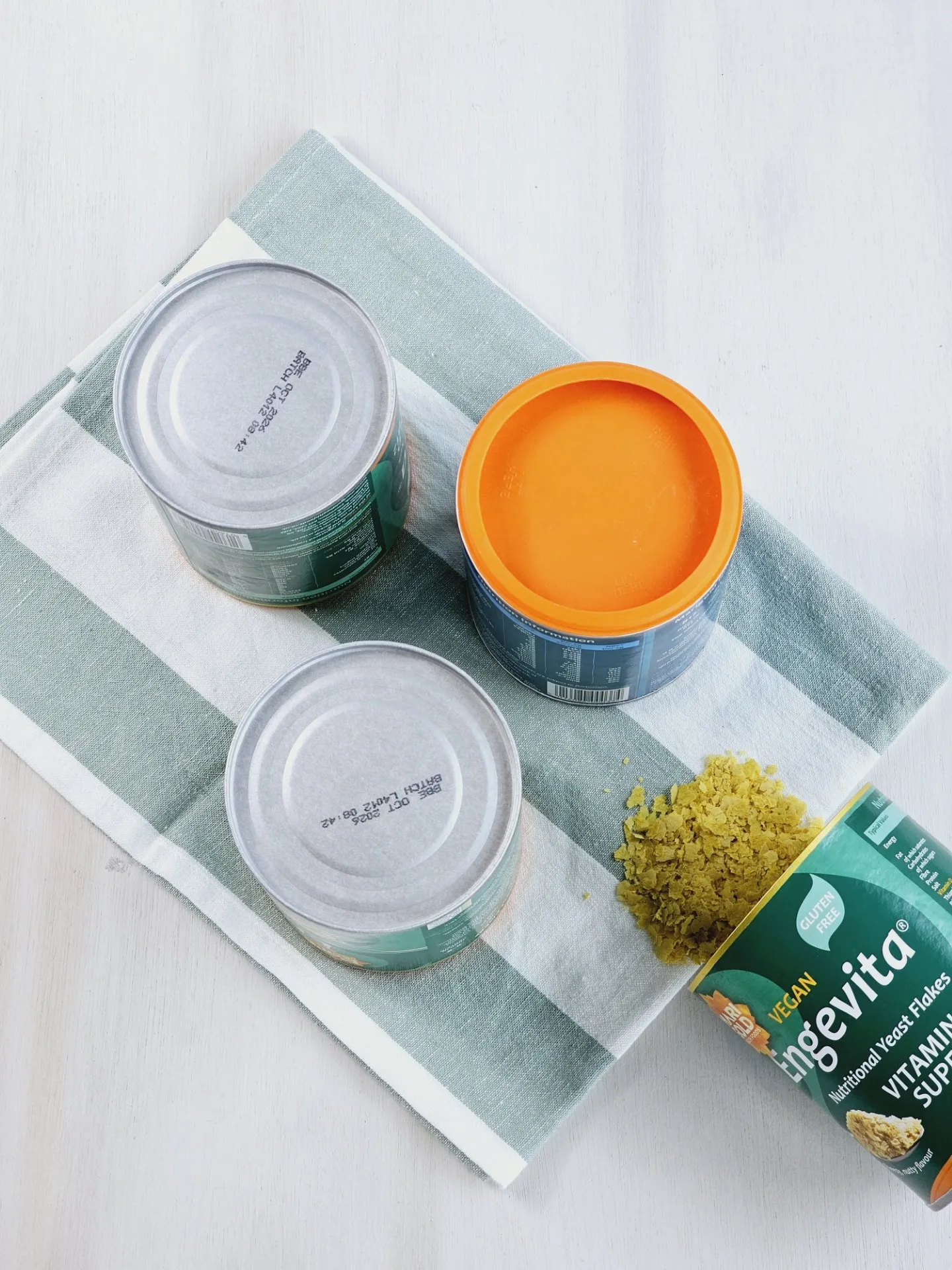
Sonoco recently announced that Marigold Health Foods will use its paper-based EnviroCan for a range of plant-based products in the U.K. The can, two years in the making, now has a cardboard body and a paper base rather than a metal one.
Sonoco said this development makes the product fully recyclable in curbside programs and compliant with upcoming U.K. and European Union packaging regulations. The can is also 20% lighter than before. Sonoco says 95% of the can is now paper, including 60% postconsumer material. Exceptions to this paper overhaul include an aluminum seal, LDPE lid and an inner liner.
This marks the latest sign of growth for Sonoco’s paper-based cans, which the company has been marketing in recent years and working to introduce to customers and recyclers in the U.S. market.
Cooking up new plastic
Plastics manufacturer Braskem America announced it’s offering a polypropylene product derived from used cooking oil that can be used for flexible packaging and films and food packaging. The company said the mass-balanced material, which is certified through ISCC Plus, has the same performance properties as traditional PP and can be recycled in the same way.
“Our bio-circular PP is currently being supplied to various converters which support the Quick Service Restaurant industry,” said Bill Diebold, vice president for Braskem America Polyolefins, in a company press release. “Ideal users include QSR chains, retail food suppliers, traditional restaurants, and snack food companies especially those seeking to enhance circularity from their cooking oil usage.”
The product, dubbed “Wenew,” is positioned by Braskem as a more sustainable alternative to fossil-based sources of propylene. Separately, the company does partner with the fossil fuel industry. For example, Braskem has worked with Shell Chemicals to source “bio-attributed and bio-circular propylene feedstocks,” also based on a mass balance approach.
Concentrating on recycled content
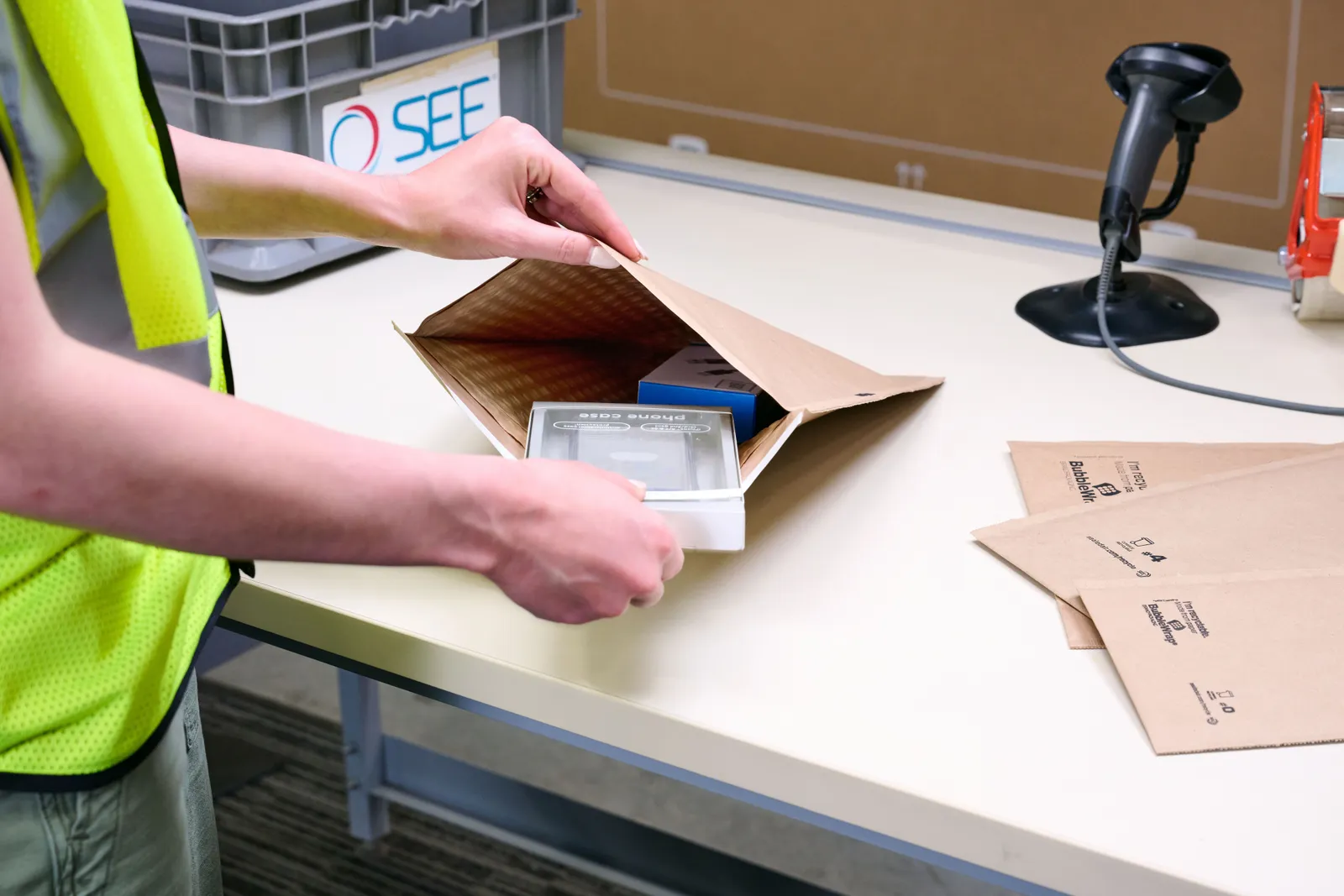
Sealed Air is pulling back the curtain on its work with Best Buy to add recycled content to packaging the electronics retailer uses throughout its supply chain and to ship e-commerce orders to North American consumers. The swaps occurred in three different Bubble Wrap brand products: inflatable air pillows, mailers and cushioning material.
The bubble cushioning that Best Buy uses is now made from at least 90% recycled plastic, and the inflatable air pillows are made from at least 50% recycled plastic, 30% of which is postconsumer. Both replace similar packaging products that did not contain recycled material, a Sealed Air spokesperson said via email. The paper mailers contain at least 38% recycled content and replace plastic-based mailers. HDPE is the primary resin used to make the air pillows, while LDPE is the main resin in the cushioning.
The air pillows and cushioning have the How2Recycle label for store drop-off programs, while the fiber mailers are How2Recycle-approved as widely accepted through curbside programs, the company says.
Sealed Air shipped the products between November 2023 through April this year. Sealed Air also worked with the retailer to arrange plastic waste collection from distribution centers for material recycling.
Best Buy is newer to updating its packaging than some other large retailers; the company said it released its first public statement in 2023 addressing how to reduce the environmental intensity of its packaging.


